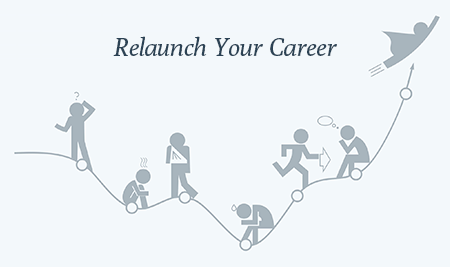I’ve seen this play out with friends and colleagues too: loyal to the company; taking on special project after special project; beacons of institutional knowledge; culture-setters. Their efforts would go largely unrecognised and time after time they are knocked back for promotions, development opportunities or even a modest pay rise in reward for their efforts.
Why? Granted, sometimes even when a person is trying their best it may be the case they are simply not the right culture or skills fit for the job, organisation or sector they work in. That isn’t necessarily anyone’s fault —sometimes the shoe just doesn’t fit.
But other times there are insidious biases clouding the path of advancement. This can result in an employee being unable to change a career-limiting, historical narrative that their bosses, senior colleagues and/or influential professional peers have created about them, regardless of evidence to the contrary about their performance.
When it’s time to move on — move on
 If you have lost confidence that your performance and prospects are being considered in an objective way by your employer then it might be time for you to consider a change of scene.
If you have lost confidence that your performance and prospects are being considered in an objective way by your employer then it might be time for you to consider a change of scene.
I have been confronted with this choice before. What it has taught me is that rather than holding out hope for people to see you differently, a better investment of your time and energy, instead, may be towards a bold step away from your current environment in pursuit of exciting new endeavours.
Fortunately, when I made the decision to transition into the public sector I was met with people who saw my potential, recognised the quality of my work and elevated me to new heights. I started out on a project team in a temporary contract role, which was then extended by a year. Less than one year after that I was promoted to a more senior role.
In thinking about whether a career switch is right for you, I don’t want to disregard the constraints that come with living and working in an area that has a constrained labour market. This isn’t the case in Melbourne where I live, but it is unfortunately a harsh reality in many parts of the world. If you are somewhere like America — perhaps a constraint might be fear of losing health or dental cover benefits available through your current employer. These can be very real factors to take into consideration.
I’m also not saying that patience isn’t a virtue or, in fact, a vital attribute to have as you navigate steep learning curves and gain experience earned — over time — on your unique career path. Everyone encounters setbacks from time to time. That’s life.
What I am saying is that being patient and applying yourself in an environment where there is scope and appetite for you to progress is a very different prospect to being pigeonholed in an external narrative that is holding you back. If there are possibilities to broaden your horizons elsewhere and you want to seize those opportunities then you need to get yourself in the game.
If the organisation you work for isn’t honouring your potential then it is worth seeking out work in one that will.
How will I know if I’m being held back by my employer?
Changing goal posts and hollow promises — a sense that no matter what you do to change or improve your performance it will still, somehow, not be good enough. Performance conversations, even praiseworthy ones, that replicate themselves over and over again without ever resulting in reward or growth opportunities. Putting your hand up for opportunities, but always being overlooked. These are just some of the possible signs that you are being held back in your job.
This can be a major confidence killer. That annoying little voice creeps in to your head and says, ‘If you can’t make a success of things here then it’s not going to be any different somewhere else.’ Not true. Sometimes a fresh start allows others to see you in a different light. When you do find something better you may well wonder why you didn’t make the decision to move earlier.
Your story goes beyond where you are right now
 Creating your own professional narrative goes far beyond alignment to a particular role or organisation at a particular point in time. It’s about recognising that where you are right now is only part of your story.
Creating your own professional narrative goes far beyond alignment to a particular role or organisation at a particular point in time. It’s about recognising that where you are right now is only part of your story.
It’s important to make career decisions mapped to the heart’s desire and your natural strengths. What could the next chapter of your story look like? What influence would you like to achieve in your career and how can you leverage your current circumstances to position yourself for that next step?
Consider what learning and development you can engage in right now that will aid the path of growth. Learning is no longer just about sitting in a classroom, studying a formal qualification — there are so many ways to learn in this modern age and such a wealth of useful resources available online.
Let’s talk strategy
I’ve made a few career transitions in my working life across the private, public and not-for-profit sectors in Australia. It went something like this: finished drama school — worked a few terrible sales jobs — employment/vocational consulting and occupational rehabilitation services — management consulting — and now, government.
With each transition, the strategy I found to be the most useful was a very simple one — I discussed and consulted with others about the transition.
I sought advice from recruiters, hiring managers who rejected my job applications, friends and ex-colleagues who had made their own successful career transitions, and other people I aspired to and felt I could trust.
Talking with others can reveal pearls of wisdom and allow you to test your ideas and strategies, and refine your approach. Don’t listen to people who have a tendency to always play things safe or if you suspect they may have ulterior motives underpinning their advice — tall poppy syndrome is something to be wary of.
Job hunting on your own can be a lonely experience. Don’t forget to return the favour when the shoe is on the other foot and you have the opportunity to provide advice that might help someone else. What goes around comes around.
In my experience, creating your own professional narrative is about taking a big picture view of your career and what is possible, rather than focussing only on where you are at right now. It requires courage, trust in yourself and in your own judgement.
If you were to turn your attention now to your inner voice to direct your career path and start writing your own professional narrative — what would that voice be telling you to do next?
Good luck out there.
This article was originally published by Ben Mallinson on Medium.
About Ben Mallinson, Guest Contributor
 Ben Mallinson has worked in a range of roles and projects in the private, public and not-for-profit sectors. After a stint at drama school in New Zealand where he earned his Bachelor of Performing Arts Ben took a change of path, taking on a junior role in 2010 as an associate employment advocate for a not-for-profit employment services provider. He then progressed into more complex case management, business development and vocational consultant roles working with welfare recipients and workplace injury and traffic accident compensation clients to gain new employment.
Ben Mallinson has worked in a range of roles and projects in the private, public and not-for-profit sectors. After a stint at drama school in New Zealand where he earned his Bachelor of Performing Arts Ben took a change of path, taking on a junior role in 2010 as an associate employment advocate for a not-for-profit employment services provider. He then progressed into more complex case management, business development and vocational consultant roles working with welfare recipients and workplace injury and traffic accident compensation clients to gain new employment.
In 2014, Ben had a swift change and a new challenge when he commenced an executive assistant and project coordinator role with an award winning Australian management consulting firm. In 2017, Ben took another leap; this time into state government as a learning and development portfolio lead for a client incident management reform project.
Ben currently works in a senior compliance/project role for the same department in a team tasked with transforming the way it manages the performance of organisations funded to deliver services. He’s currently undertaking business management studies and has a keen interest in career transitions, leadership, L&D, and workforce change and transformation.



